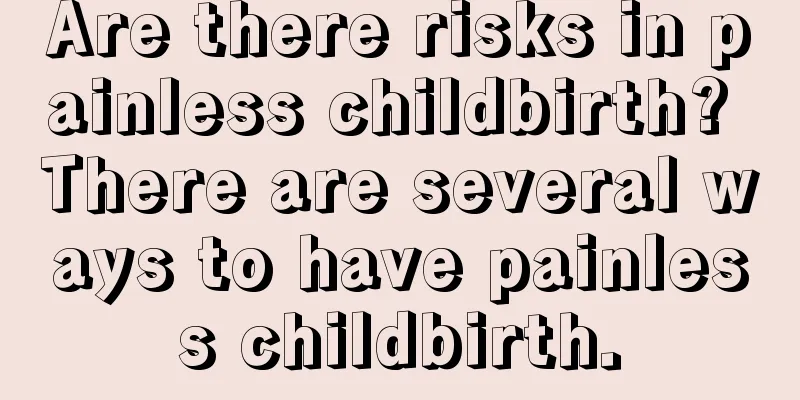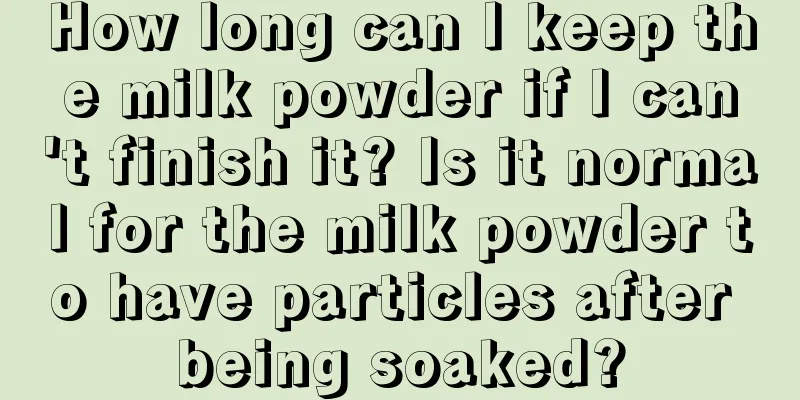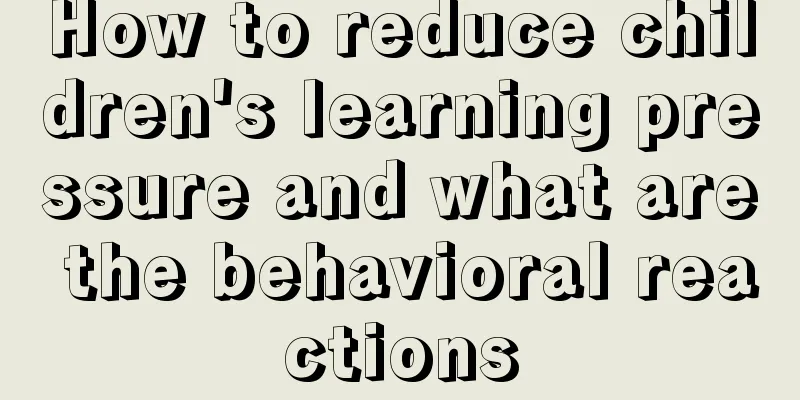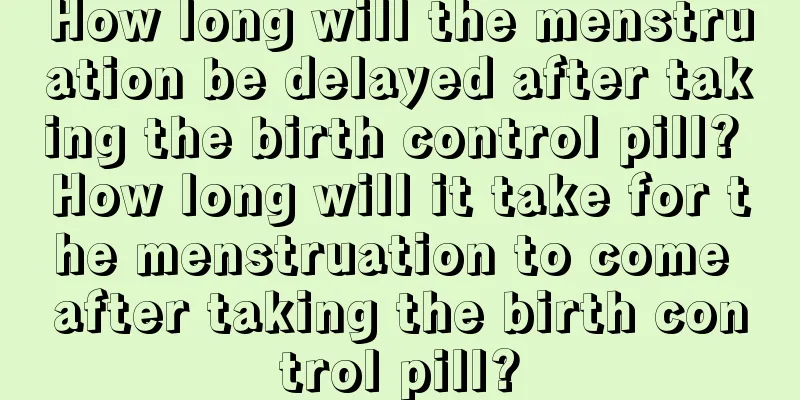Are antipyretics harmful to the kidneys? Side effects of antipyretics on children

|
Baby fever is a common problem. Today, let's talk about whether taking antipyretics for babies with fever will have any significant impact or harm. When the baby has a fever, parents cannot not take antipyretics, nor can they take medicine immediately when the fever occurs. What is the most reasonable way to take medicine? Please see the detailed introduction below. Do antipyretics harm the kidneys?1. Is it true that using medicines containing acetaminophen will damage the kidneys? answer: (1) Acetaminophen is a centrally acting antipyretic and analgesic drug. Under normal health conditions, it does not cause nephrotoxicity when used at the normal recommended dose (no more than 4000 mg per day for adults and no more than 50 mg per kilogram per day for children, taken in multiple doses with at least 4 hours between each dose). There are a few reports showing that acute overdose can lead to renal dysfunction, but most of them are reversible. Chronic and excessive use may cause serious kidney damage. (2) According to foreign reports, long-term use for more than one year in adults, and the cumulative dose exceeds 1 kg (equivalent to 2,000 tablets of the general adult dosage form of 500 mg per tablet), may cause serious kidney damage. In addition, excessive use of acetaminophen or taking alcoholic beverages at the same time has the risk of liver damage. Therefore, when using drugs with this ingredient, they should be used according to the instructions or the doctor's instructions, and avoid long-term continuous use or drinking alcohol at the same time. 2. Is it true that using antipyretics will delay treatment? answer: (1) Fever is a symptom, not a cause of disease. Understanding the cause of a fever is far more important than reducing it. Therefore, when you have a fever, you should seek medical treatment immediately to understand the cause of the fever. Do not buy antipyretics on your own to avoid delaying treatment of the disease. (2) The main purpose of using antipyretics is to relieve the discomfort caused by fever. When the fever exceeds 38.5°C and there is discomfort, antipyretics can be given appropriately, but it is not necessary to reduce the body temperature to the normal range. 3. Does the United States completely prohibit the use of cold and fever medicines for children under 2 years old? answer: (1) The U.S. Food and Drug Administration has not completely banned the use of antipyretics or cold medicines for children under the age of 2, but has emphasized that they should be used under the guidance of a physician. The United States analyzed the serious adverse reactions caused by children using cold medicines, mainly because Americans can buy over-the-counter medicines at pharmacies, and parents may overdose on the medicines because they have no idea of dosage, which may put their children in danger. my country's recommendations on the use of this type of medicine are consistent with those abroad, and the Chinese leaflet states that "young children should consult a physician for treatment and should not use on their own," emphasizing that cold medicines must be used by professional physicians before they can be used on children under 2 years old. (2) Young children’s physiological development is not yet complete, so special attention must be paid to drug dosage. Therefore, whether it is Chinese or Western medicine, the use of drugs by young children must be evaluated by a physician familiar with pediatrics for its clinical benefits and risks, and the appropriate dosage should be prescribed according to the child’s weight and age. Parents who use drugs according to the prescription of professional physicians will not experience adverse reactions such as nephrotoxicity. Side effects of antipyretics on childrenAs the saying goes, "All medicines are poisonous", chemical drugs generally have the advantage of quick effect, but they may also have different side effects. From the above analysis of the six children's antipyretics, we can understand the side effects caused by different antipyretic ingredients. In comparison, acetaminophen and ibuprofen have the smallest side effects. The side effects of common children's antipyretic drugs are generally irritation to the gastrointestinal tract, but the side effects of analgin and aminopyrine are more obvious, which may cause collapse or even shock. Children with allergic constitutions will develop drug rashes and urticaria, which are life-threatening. These types of drugs are also gradually being eliminated. Recommendations for using antipyreticsThe World Health Organization recommends: ↑For babies whose axillary temperature exceeds 38.5℃, antipyretics should still be used. There are two main purposes for using antipyretics: 1. Relieve the discomfort caused by fever to the baby so that the baby can eat and sleep normally, replenish enough energy and maintain physical strength to fight the disease; 2. Prevent your baby from having febrile convulsions due to high fever. !Having had 1-2 febrile seizures usually does not affect the baby's brain development, so parents do not need to worry too much. However, repeated febrile seizures will cause some damage to the baby's brain, and some of them will turn into complex febrile seizures or epilepsy, which should be avoided as much as possible. Therefore, for babies with a history of febrile seizures, medication can be considered for cooling down when the body temperature reaches 38°C. In addition, cooling down is to avoid inducing febrile seizures, so the purpose of using antipyretics to cool down is not to lower the body temperature to the normal temperature, but to lower it to below 38.5°C. There are two classic oral antipyretic drugs that are widely used in countries around the world, recommended by the World Health Organization, suitable for all ages, economical, and safe to use: acetaminophen and ibuprofen. These are the representative Tylenol and Motrin that we often use in our lives. Acetaminophen (eg, Tylenol) is the first choice and is suitable for children over 3 months old and adults. |
>>: Don’t braid your daughter’s hair anymore. How to make a beautiful hairstyle for girls?
Recommend
What should I do if my baby's nails are cut and the skin is broken? What should I do if my baby's nails bleed?
When cutting your baby's nails, if the baby m...
How to choose a baby food processor? The difference between a baby food processor and a juicer
The food processor is a machine that helps mother...
What are the dangers of sinusitis in children? How to treat sinusitis in children effectively?
Sinusitis is often a respiratory tract infection ...
How old can a child be used to use a fever patch? How old is the fever patch suitable for?
The cooling effect of the fever patch is quite go...
Rhymes to coax your baby to sleepRhymes to coax your baby to sleep
Baby sleep is very important, parents will use so...
How to care for newborns in summer Newborn care in summer
Spring is halfway through and summer is coming. H...
8 things to know about fluoride treatment for children's teeth
When the baby starts to grow teeth, parents must ...
How to feed a baby after one year old? Is it good for the baby to drink milk?
Is it necessary for babies over one year old to d...
Is Yunnan Baiyao toothpaste effective for bleeding gums? Is Yunnan Baiyao toothpaste toxic?
Does Yunnan Baiyao toothpaste really contain Yunn...
3-year-old baby development indicators 3-year-old baby development standards
The baby has grown to 3 years old. Babies at this...
Belly pain in 6 months of pregnancy Belly pain in 6 months of pregnancy
There are many things to pay attention to during ...
What are the symptoms of iron deficiency anemia in children and what should they eat
Children need a lot of nutrients during their gro...
Can the husband accompany the birth? Is it okay for the husband to accompany the birth?
In foreign countries, it is very popular for pare...
Can I eat hawthorn before giving birth? What can I eat before giving birth to help with a smooth birth?
Hawthorn is a fruit that pregnant mothers should ...
Which country's brand is Ariel laundry detergent from? How to tell whether Ariel laundry detergent is real or fake?
The Ariel brand has a long history. Have you ever...









